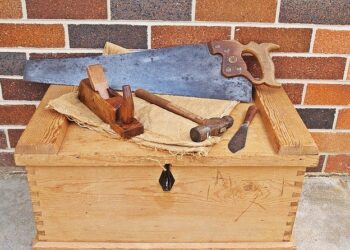Electrical testers are extremely useful in ensuring that electrical systems are safer and more effective. Several major trustworthy brands pick from fast and straightforward to use inside the detailed selection of good quality electrical test meters. Here are just a few of the features and advantages of using electrical test meters.
- Skilled electricians use several testers to verify a broad spectrum of electrical functions in residential and industrial electrical wiring. Some of these tests would help DIY homeowners. When it comes to working on electrical wiring, knowing how to classify these testers, understand their purposes, and how to use them can significantly increase your knowledge.
Some testers are multi-function instruments that can conduct the bulk, if not all, of the typical electrical monitoring tasks. In contrast, others are single-function sensors that only test for one function. Electrical meters monitor AC and DC voltage levels accurately. It also tests for amperage, stability, short and open circuits, polarity, and other stuff. Any of the devices mentioned below serve this purpose.
Plug-In Circuit Analyzers:
Plug-in circuit analyzers are low-cost, simple-to-use testers that can reveal a lot about an electrical circuit’s functions when plugged into a socket. These testers are only equipped to test grounded outlets with three slots, not ordinary electrical outlets. Since there is no ground wire attached to older two-slot sockets, the testers cannot be used to test them.
Read: Best Electric Screwdriver
Multi meter
Multimeters are the most flexible of electrical testers, and as their name indicates, they can perform a wide variety of measurements. One of these instruments is owned by an experienced electrician. Resistance, AC and DC voltage, continuity, capacitance, and frequency can be measured precisely in most multimeters. A multimeter will have practically all of the knowledge given by all other testers if you understand how to use all of its features.
Wand Voltage Meter
Another advanced tester that is usually only owned by professional electricians is a wand voltage meter. There are two modes of operation for this numerical voltage tester. The instrument comes with wire leads that look like those used in a fluorescent voltage tester or multimeter that can be used to calculate voltage or continuity by pressing them to bare wires or metal contacts.
Digital Clamp Meter
A wireless clamp meter is an instrument that is usually only used by electricians. It is significantly more costly than a multimeter and incorporates a multimeter’s features with a current sensor. A clamp meter varies from a multimeter in many ways, the most notable of which is that it has clamping jaws that can grip wire conductors. In certain situations, such as testing individual circuits inside an open circuit breaker panel, this makes the instrument safer and easier to use. The instrument comes with wire leads, allowing it to be used in the same manner as a typical multimeter.
Efficiency Analyzer
Electrical testers are able to measure a wide range of electrical parameters, from current to voltage to resistance, continuity, and beyond. From live wires and circuit breakers to power transformers, electrical testers check everything and electrical panels for contractors. Clamp measure, current clasp, optical multimeter, oscilloscope, and power efficiency analyzer are just a handful of the names for an electrical tester.
PCE Instruments (PCE) provides a wide range of electrical tester devices for almost every practical electrical testing use, whether you need one for non-contact voltage detection or open-jaw current testing. Data-logging capability is available on some of PCE’s more sophisticated electrical testers, enabling you to calculate and save readings to memory.









